Friday 11/1: This morning we selected the Full English Breakfast, which was nummy, and met several other con people staying in our hotel including Wesley Chu. Then off to the con and a full morning of programming!
The panel on “what can we learn from the transition from the pulps to the digests?” was more of a historical overview and reminiscences about the good old days. The Neil Gaiman interview was delightful as always, beginning with a memorable anecdote about how he lost his shirt (and all his other stuff) at the Metropole when he was here for the Worldcon in 1987. The Style vs. Substance panel sounded interesting, but on the way I ran into Mary Robinette Kowal, who very kindly introduced me to her UK editor. Because of this I missed almost all of the panel, which I do not regret in the least. After that we ran off with Gordon Van Gelder and Geoff Ryman for lunch at the Greek place near the hotel. Fried feta with honey, yum.
The Terry Pratchett interview was disappointing. He was accompanied by two people who didn’t introduce themselves and talked about projects which they assumed we already knew about and/or could not divulge details of, which was confusing and frustrating. Worse, they did most of the talking, so we didn’t hear nearly as much from Terry as I would have liked. Perhaps they were working around his limitations, but although his speech was slow I got the impression he was still pretty much in touch with the world (more so than some of the more elderly authors at the con, in my opinion) and I wished the other two people would have allowed him more microphone time. After that the “how far can you go in YA” panel was fun, but was marred by an overly perky moderator who insisted on referring to the panelists and audience as “hoodlums” and “sinners.” Don’t ever let schtick get in the way of content, people.
Hung out with Ellen Klages in the “quiet” bar (hidden behind closed restaurant, and not very quiet at the moment because of a publisher party), then went out for a tasty and inexpensive Moroccan dinner with Lee Moyer, his friend Venetia(?), Shannon Page, and Mark Ferrari, returning in time for the mass signing, where I wandered around and chatted briefly with a lot of people. Several people asked me “why are you wandering around instead of sitting and signing?” to which I replied “no one wants my autograph.” Which isn’t strictly true — I did sign a couple of anthologies and several con program books — but not nearly enough to justify planting myself in one place just to make it easier for autograph seekers to find me. At the signing a well-known fantasy author told me how much she loved my blog, dealing with such tough subjects; I was disappointed to have to tell her she was thinking of Jim Hines (we do look rather a lot alike, if you judge by our LiveJournal userpics). She said “is there something here I can crawl under?” When the signing ended I tried the Tor party, but found it too crowded and noisy and went back to the room about 10:30 (feeling very wimpish for doing so, but also very tired after Barcelona and London).
Saturday 11/2: Breakfast: kippers for Kate, porridge for me. The “Next Big Thing” panel (Tom Doherty et al) was not really very informative, being mostly a reiteration of the standard advice “don’t try to follow trends, just write a damn good book.” The Agents panel (Meg Davis, John Jarrold, Ian Drury, Juliet Mushens, Barry Goldblatt, Joshua Bilmes) was more useful, and I talked to several of the agents afterward. I’ll have some queries to send when I get home.
After that panel I went to the Regency Tavern (right next to our hotel; not to be confused with the similarly named restaurant) to meet with Paul and Maureen Kincaid Speller, who came down from Folkestone for the day though they were not attending the con (cue horror stories about the Metropole, including the time they found their bed terribly lumpy and discovered that someone had put a door between the mattress and box spring without removing the knob). I was astounded to discover that the bartender (a 20something woman) had apparently never heard of porter (“Do you mean port?”) or stout (“You know, stout? It’s a dark beer?” “We have the X ale and the Y ale, the Y is a little darker, is that what you mean?” “Tell you what, I’ll have a cider.”) I also had a perfectly acceptable sausage and onion sandwich, though in the US it would have been served on a bun rather than between slices of bread.
Back to the con for the “ideas we never want to see again” panel. Apparently zombies are overdone (thank god) and many more people think they can write a literary fantasy a la Cat Valente than can actually do so. Also, no dinosaur erotica! (Far from the only dino erotica reference of the con. Apparently this is A Thing.) Then I took off from the con for a short nap, followed by a trip to the nearby shopping mall to look for Corgi cars (I collected them as a kid and still have fond memories) and fondle the new iPad Air. Finding no Corgis at the toy shop in the mall, I tried another shop nearby but couldn’t find it; apparently it’s folded. There was another toy shop not too much further away, but the weather was so grim (cold, rain, wind) that I turned around and headed back to the hotel.
The “Does SF have a future?” panel (Aldiss, McAuley, et al) was mostly reminiscences about the good old days by a bunch of old white guys and was literally drowned out by the raucous fantasy panel in the next room (Lynch et al). I fear that this does sum up the state of the field.
Looking for dinner companions in the lobby and bar proved fruitless, and we were just about to give up and go out by ourselves when Patrick Nielsen Hayden came by. He was amenable to returning to the Regency Restaurant (the second visit for both of us) for delicious fish. After dinner, I hung out in the bar with a variable crowd including Charlie Stross, Elizabeth Bear, Laura Anne Gilman, and an old friend I hadn’t seen in a few years who is now a different sex. This was, upon very brief reflection, not really a surprise, and they look very good in their new gender. To bed around 11:30; a satisfying evening.
Sunday 11/3: Breakfast today was muesli with yogurt. Breakfasts at Motel Schmotel have really been very good, and if the room had not been so small (which is no one’s fault; we booked a bigger room but Kate’s knee wasn’t up to the stair climb it would have required) and the weather not so awful it would have been great. We weighed our bags, to find out if we need to ship anything home (much easier today than tomorrow) but to our surprise we found out we were not over weight.
My first program item of the day was my own reading. About 10-12 people showed up to hear me read the pirate battle scene from Arabella and the Marsman. It seemed reasonably well received, though there were no questions after. Then I browsed the dealers room and (closing) art show and hung out with Marie Brennan until the “second book” panel, which had some good ideas and Snorri Kristjansson, the funniest person I saw on any panel at this con. After that panel, I walked past the long line of just about the entire con waiting to get into the banquet; it was like the big Right and Left Grand at the end of some square dances, which gives you an opportunity to say goodbye to everyone else at the dance. But we skipped the banquet — £50 for rubber chicken was just too much — and went for dim sum with Ellen Klages, Marie Brennan, and a friend of Marie’s whose name I did not catch (Alys something?). The dim sum was okay but a bit strange in places. Ordering was via a mark-sense form (like with the SATs, complete with #2 pencil) which was entirely in Chinese except for the item numbers. We ordered noodles with peanut and hoisin sauce, expecting Dan Dan Noodles, but got something that looked more like raw squid under melted peanut butter cups (tasted okay, though, but a bit too sweet).
After lunch, we had a brief nap, then returned to the con for the combined World Fantasy and British Fantasy Awards ceremony. But from the mezzanine, where non-banquet people were allowed to view the awards, we could neither hear nor see very well. I tried to follow the awards via Twitter for a while, but eventually gave up and went to the bar, where I latched onto a group consisting of friendly Armenian-Canadians Natasha and Nadine Kharabian, artist Todd Lockwood, and artist Jim Burns, a favorite of mine since the 70s and the first time I’ve met him. Also had a nice chat with Pat Rothfuss, my Writers of the Future classmate, in which we discussed Neil Gaiman, personal branding, and how no amount of fame can prevent a crisis of self-confidence.
Some time later I was dealing with one group of people (one of them via text message) trying to arrange dinner, and simultaneously with another group of people (also including one via text message) trying to arrange rides to Heathrow tomorrow, when I suddenly realized I’d hit the wall a little bit earlier and simply could no longer cope. With anything. We decided to get dinner at the hotel restaurant with Shannon Page, Mark Ferrari, Chaz Brenchley, Karen Williams, and Chaz’s niece (local, not a fan) rather than deal with the horrific winds in our sickly (Shannon and Mark) and brain-dead (all) state. The service was sincere, but rather slow and somewhat confused. Mark speculated that, this being low season, the hotel had ordered a truckload of Assorted Staff from Eastern Europe to handle the con. Dinner concluded about 9:30, and we went back to the room and fell over hard.
Monday 11/4:
Didn’t sleep very well, with the wind roaring outside and moaning in the chimney (plainly audible despite the fireplace being completely closed off). After our last Schmotel breakfast, of porridge with fruit, we packed up, got cash and stamps, got bus tickets using the hotel’s laptop and printer (European keyboard plus Windows 8 making it a very frustrating experience), checked out, left our bags in breakfast room, and headed out for a last bit of Brighton touristing. It was a beautiful sunny day, finally, though cold. We visited the beach, Brighton Pavilion, and the Lanes, had a nice vegetarian lunch at Ideya, and ended at the train station, where we caught a cab back to the hotel for our bags, then to the bus “station” (just a wide spot in the road; fortunately it was not raining). There we saw Laura Anne Gilman and her flat-mate get on the previous bus. With 40 minutes to kill, I went down to the Pier to smash a couple of pennies.
After a little confusion, we got on the proper bus for Heathrow. I spent the ride writing up my notes for Saturday and Sunday; I don’t think I left out anything significant. At Heathrow terminal 5, we caught a “Hotel Hoppa” bus to our hotel, taking about 50 minutes to reach a hotel which is practically on the tarmac, sheesh. We’re staying at the Premier Inn, a mammoth mall-like facility, where absolutely nothing is free (£1.50 per night for the in-room safe, coin-op luggage scale, etc.) but the room is spacious (huzzah!) and clean.
Being trapped at an airport hotel without transportation, we had dinner at the hotel restaurant. We ordered a pizza, and wanted to order a couple of small salads to go with it, but there was no way to actually order a salad. You could “top up your meal” with a selection of three sides for £3.45, so we chose two salads and corn. What we got was one salad, corn, and one order of slaw, I guess because they figured no one would order two salads. Each was served in a cup, not a bowl, the size of a large coffee cup. Very strange. The pizza wasn’t bad, though. Then I asked where to print out the ticket for our Hotel Hoppa tomorrow morning and was directed to the “business center:” three PCs, two of them broken, charging £1 for 20 minutes plus 20p per printed page, minimum £5. Fortunately the one working computer had 36p in credit left on it, which was just enough for me to log into my email and print the e-ticket. Then back to the room for packing, blogging, and sloth.
Our flight home tomorrow leaves at 12:45; we’ll probably head to the airport right after breakfast. Although we are definitely still in England (who else has such dorky game shows on the TV?), in some ways we are already in transit, or perhaps in limbo — it feels like we’re at the Hiltion space station in the movie 2001, awaiting the next shuttle to the Moon. It’s been fun, but it will be good to be home.
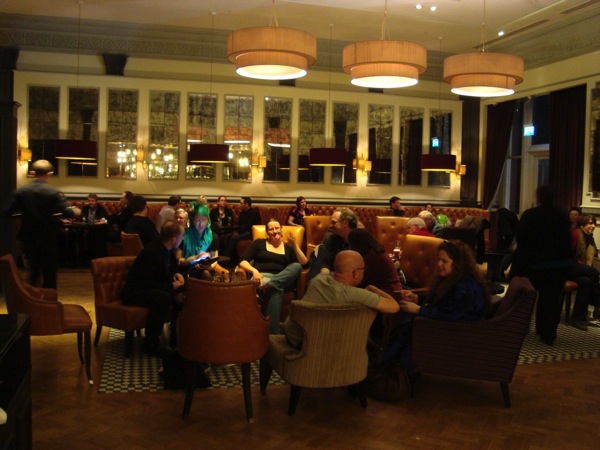
In the bar

Who’s a good Elder God? Who’s a good Elder God? You are! Yes! You are!
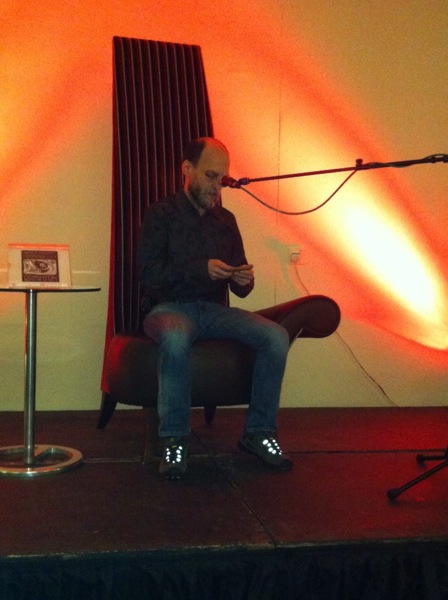
Reading from the pirate battle
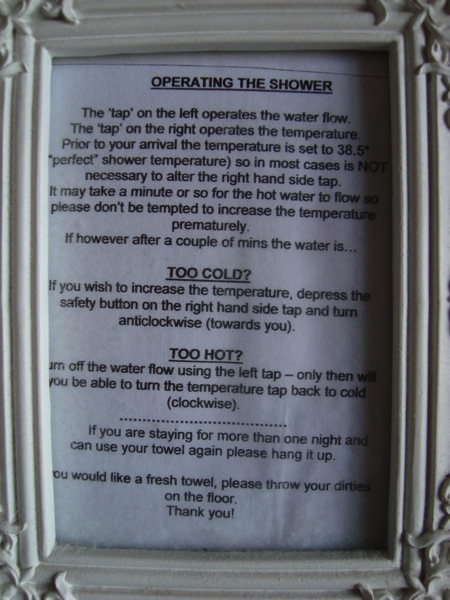
Reminds me of the zero-gravity toilet instructions in 2001
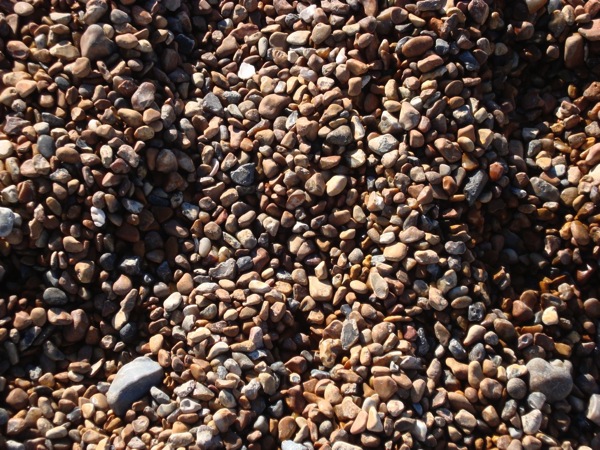
Shingle. (Instead of sand.)
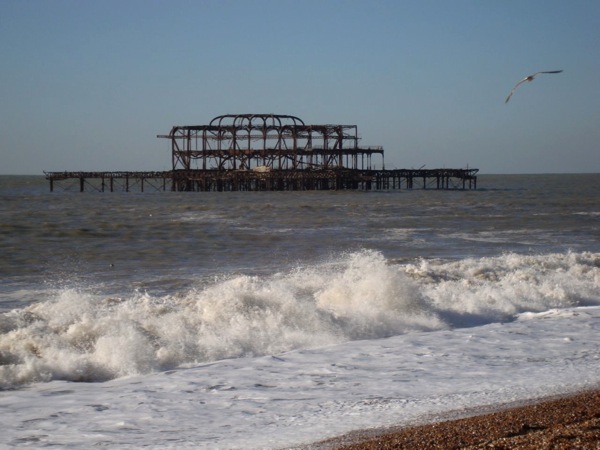
Ruins of the old pier
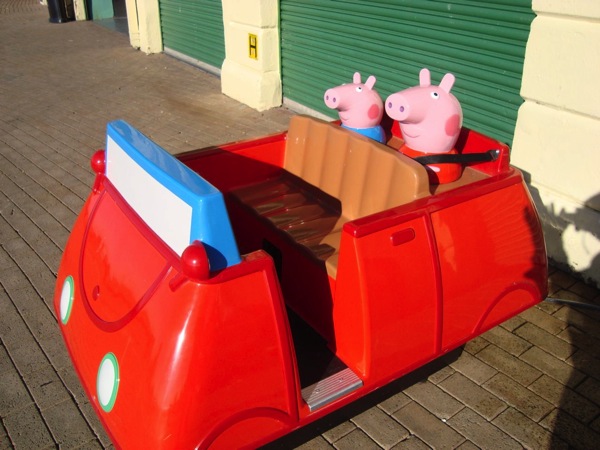
What I love about these pigs is that they have little seat belts
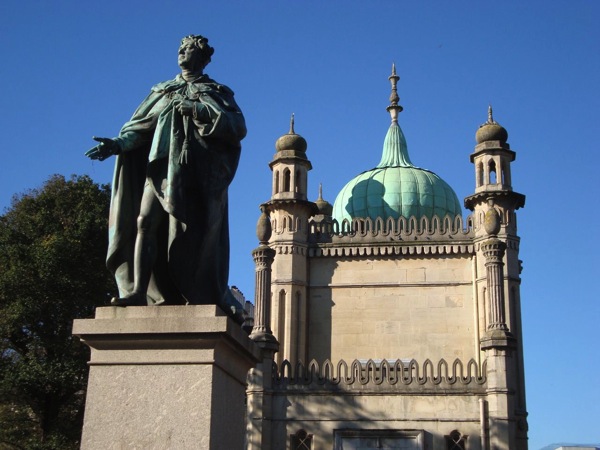
George IV has much to answer for
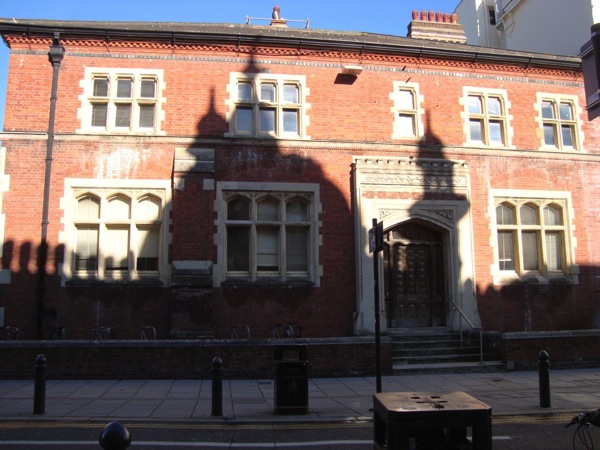
Shadows of the past
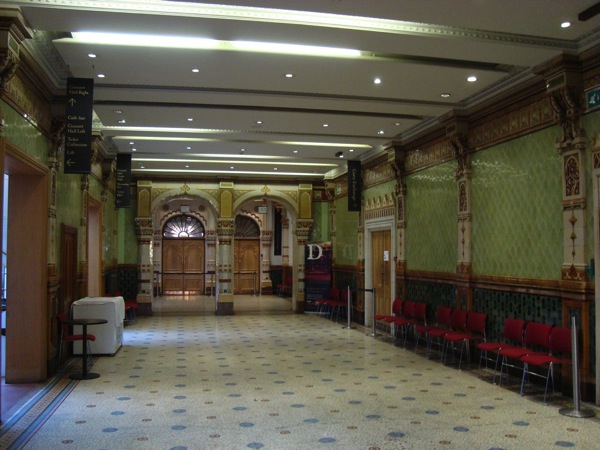
This used to be the stables
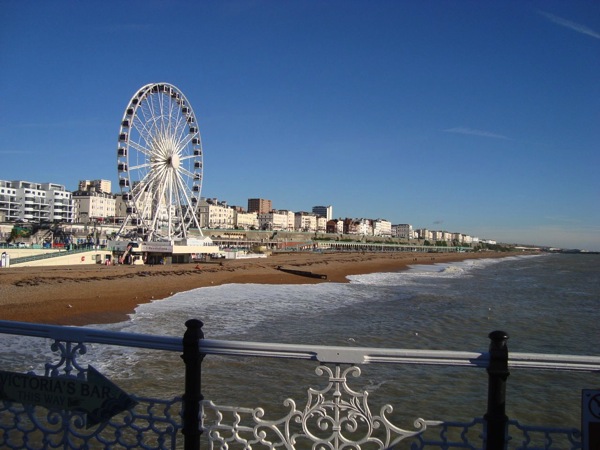
View from the surviving pier











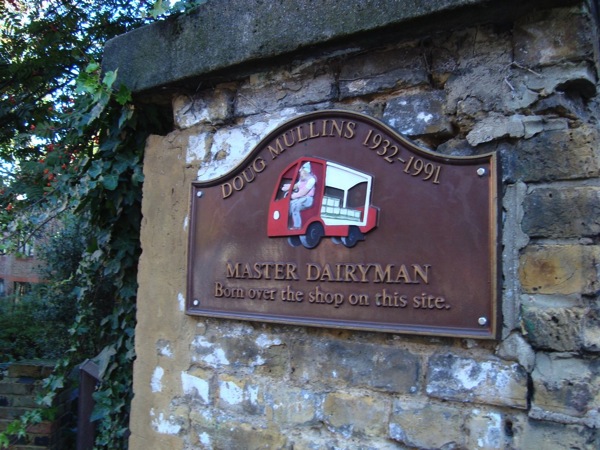
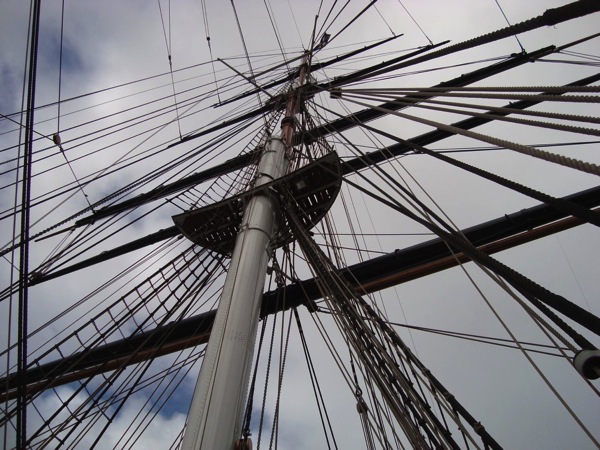
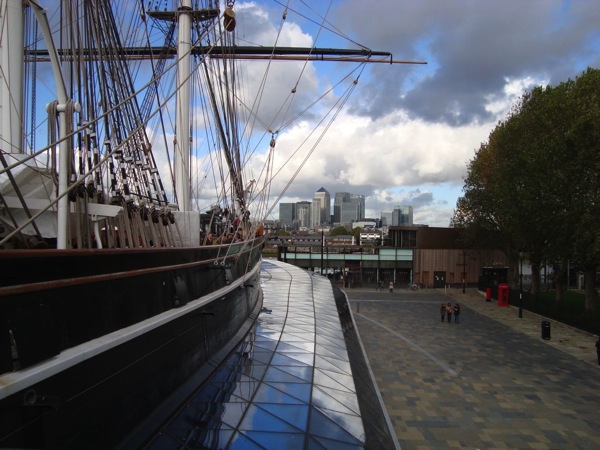
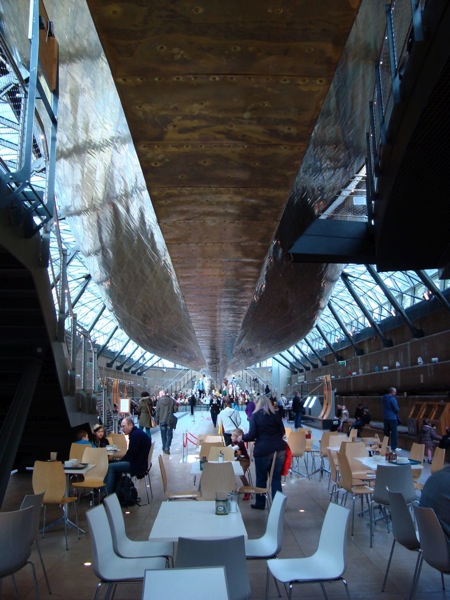
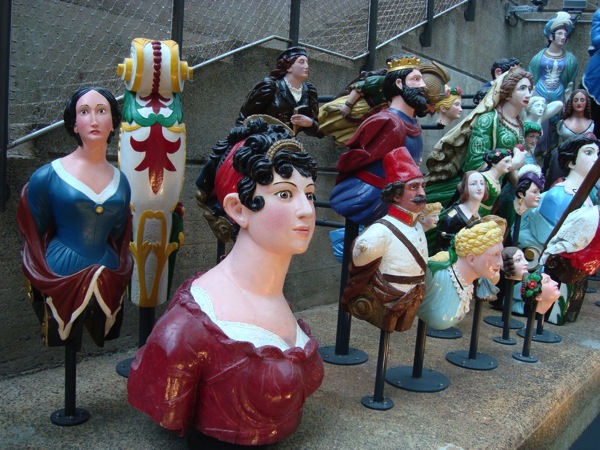
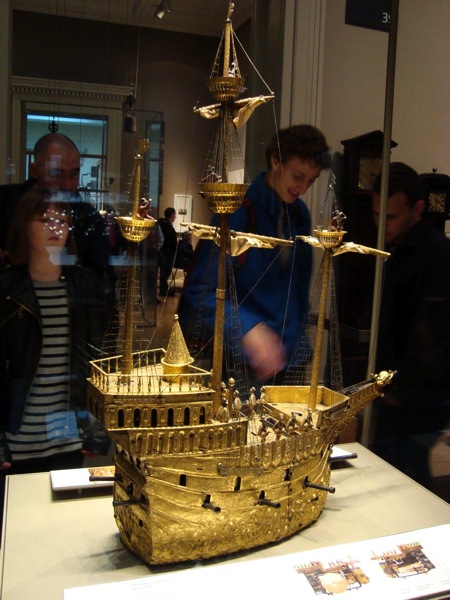
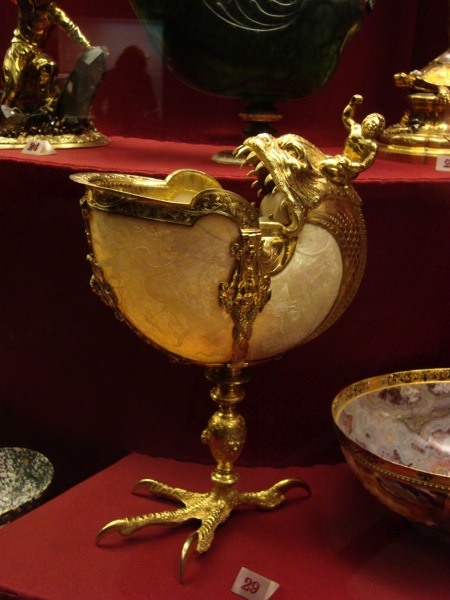
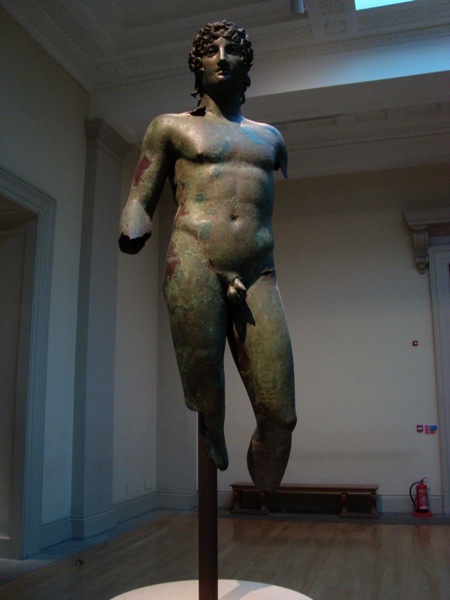
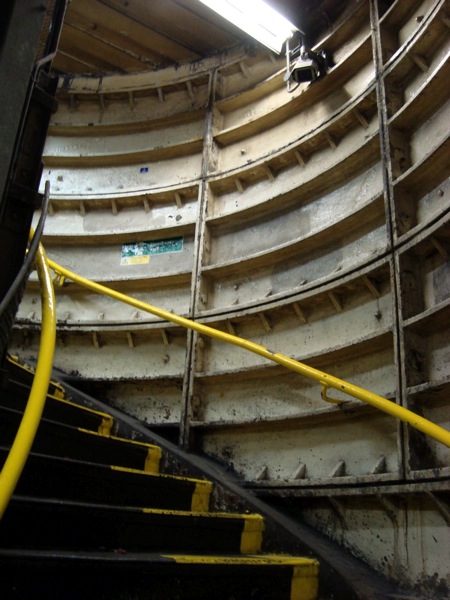
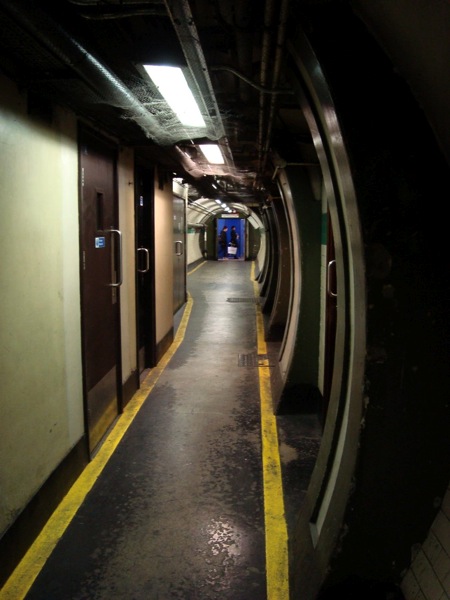
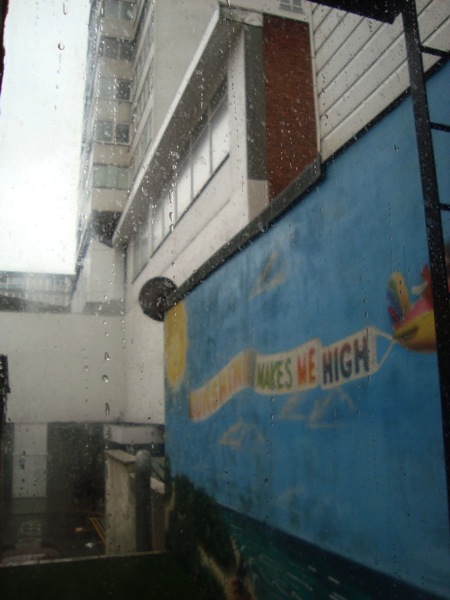
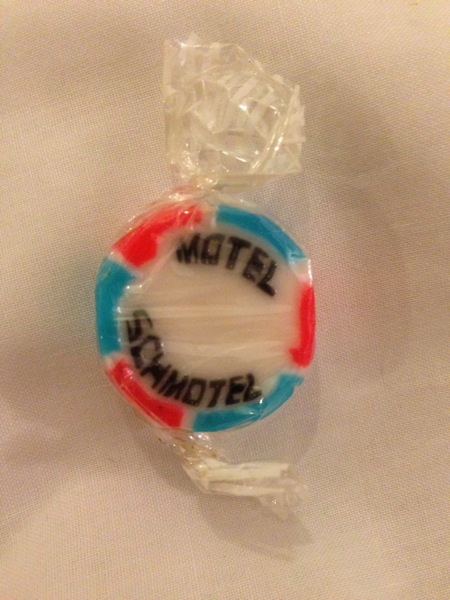
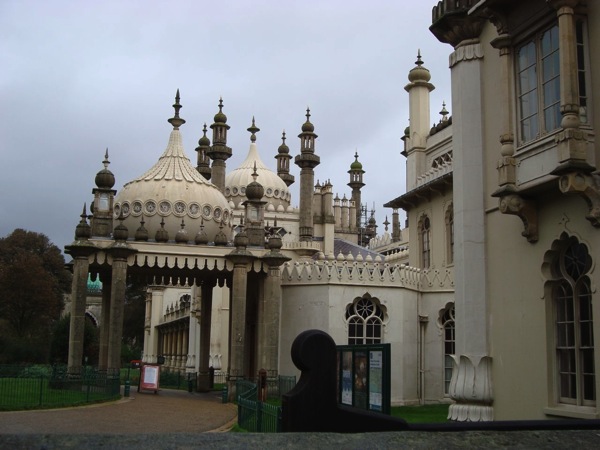
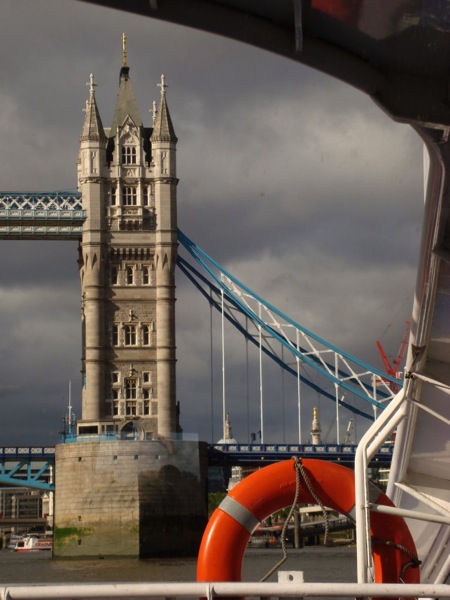
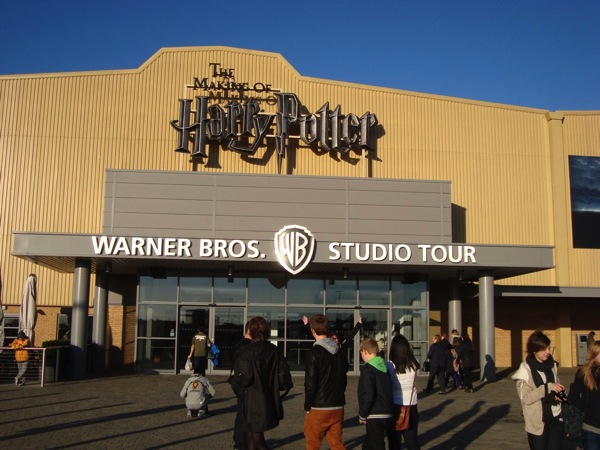
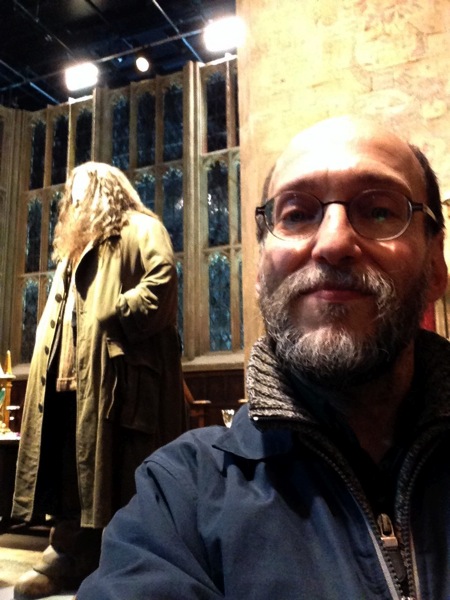
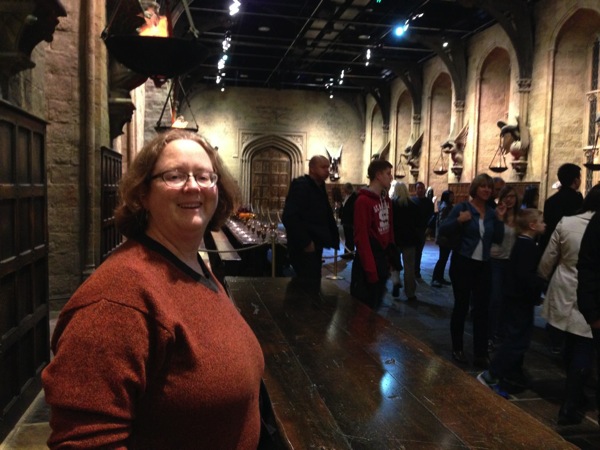
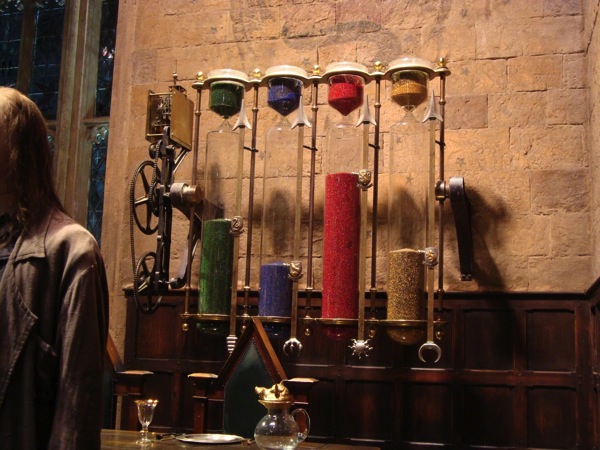
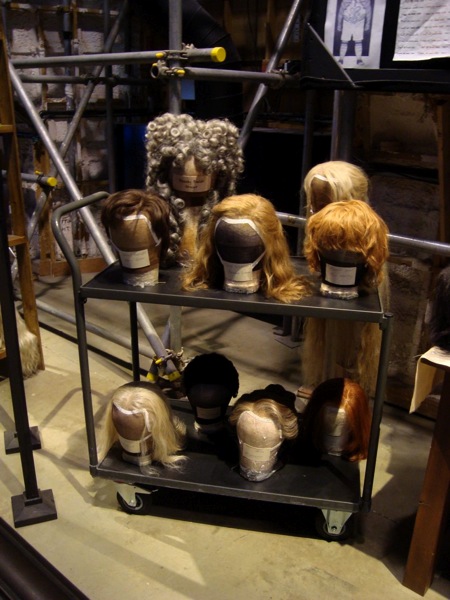
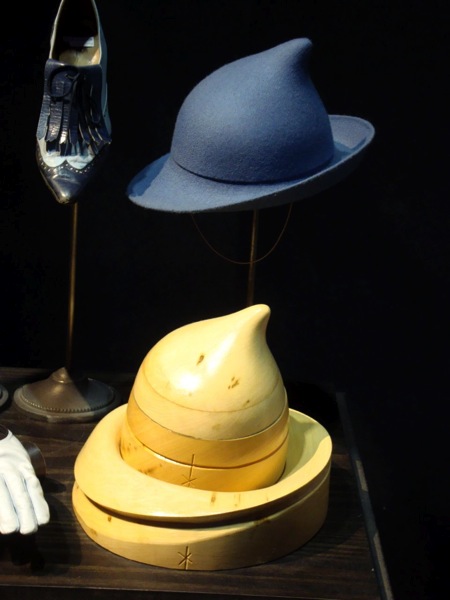
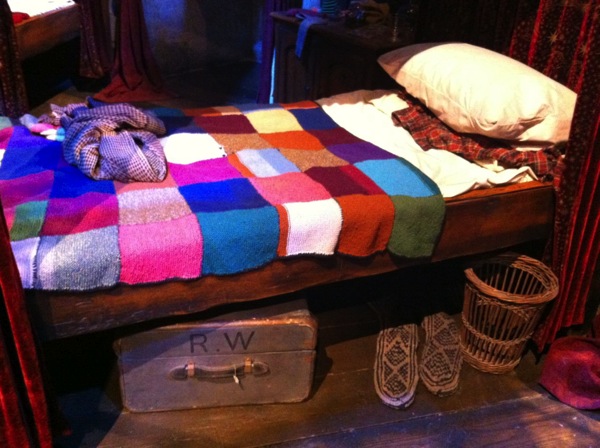
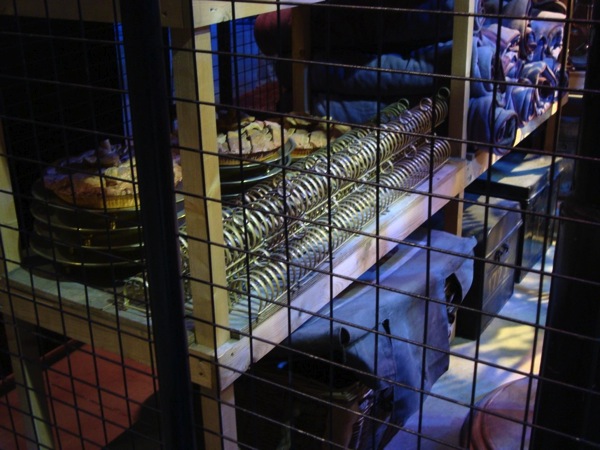
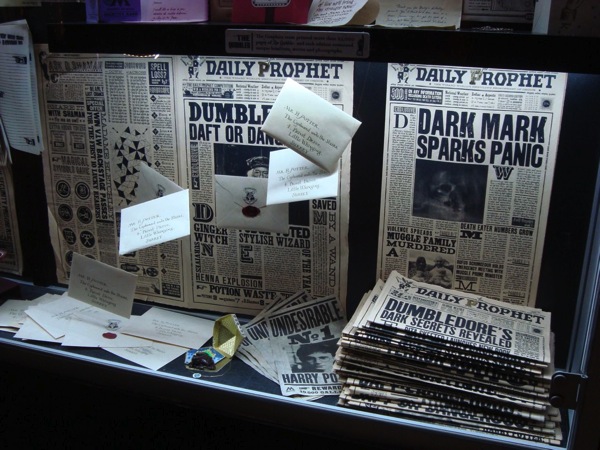
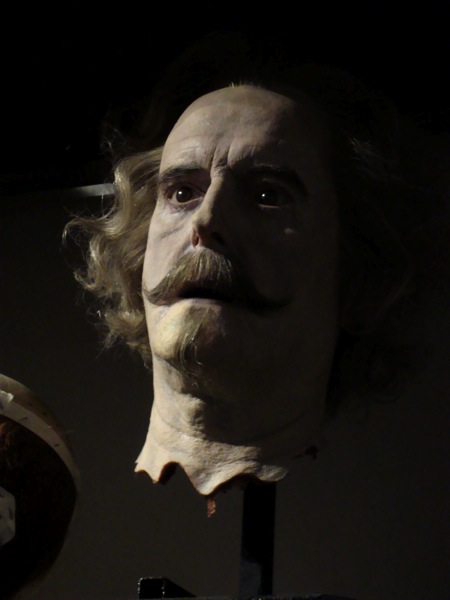
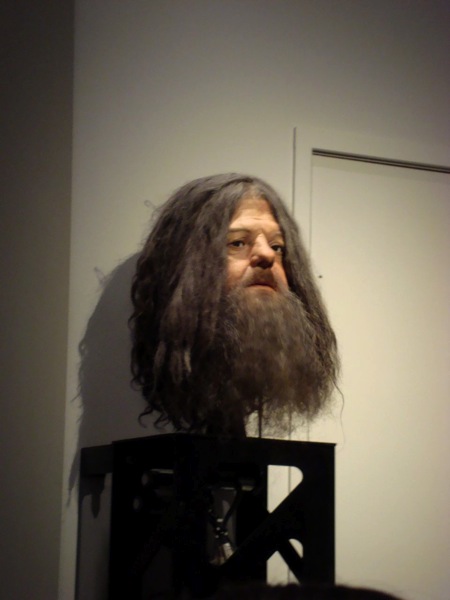
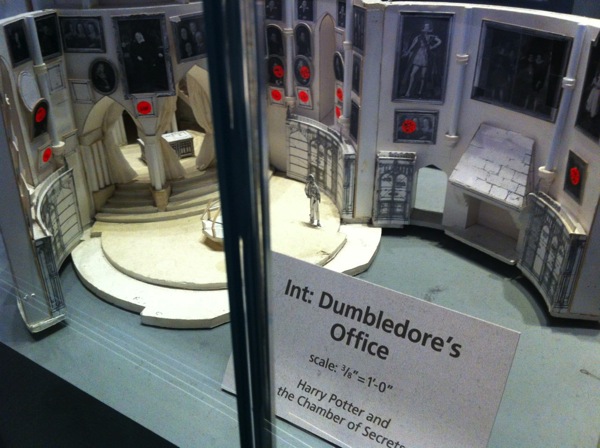
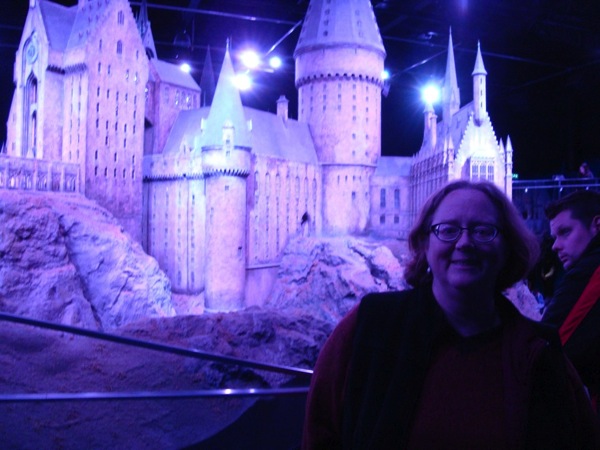
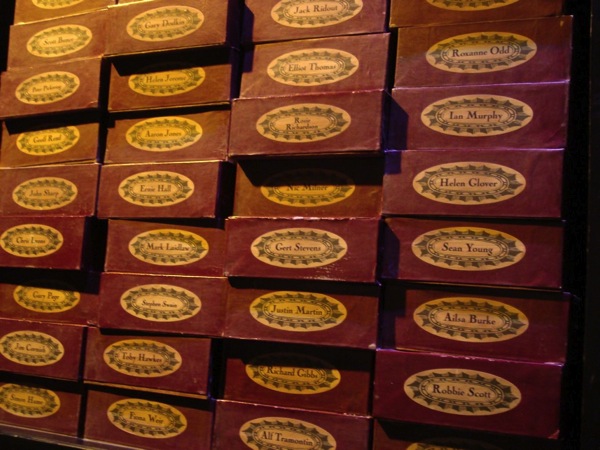
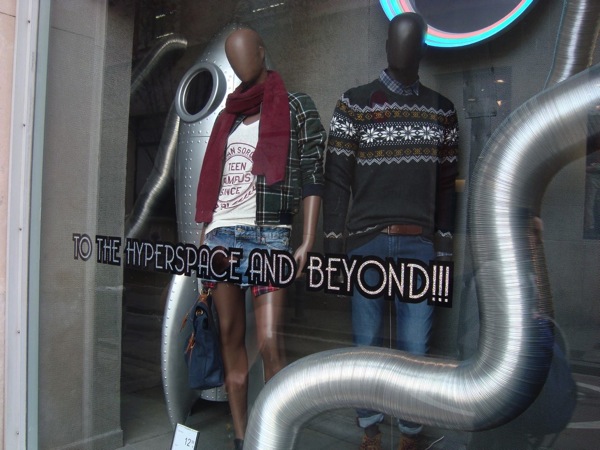
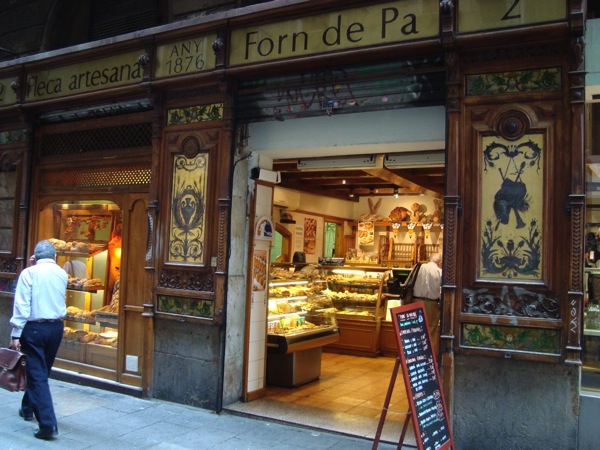
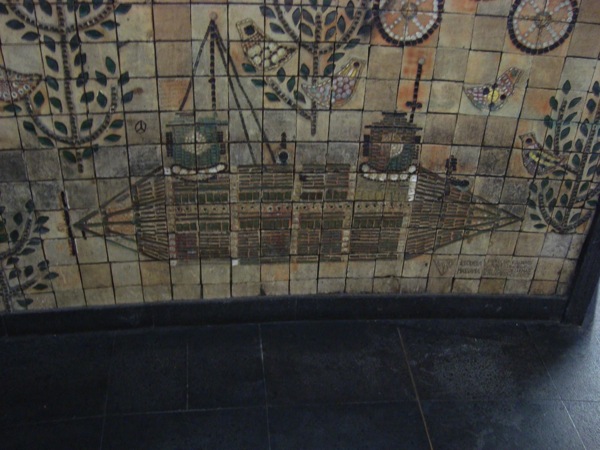
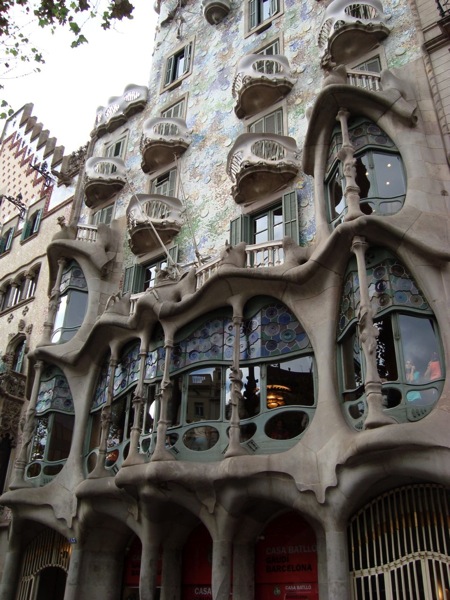
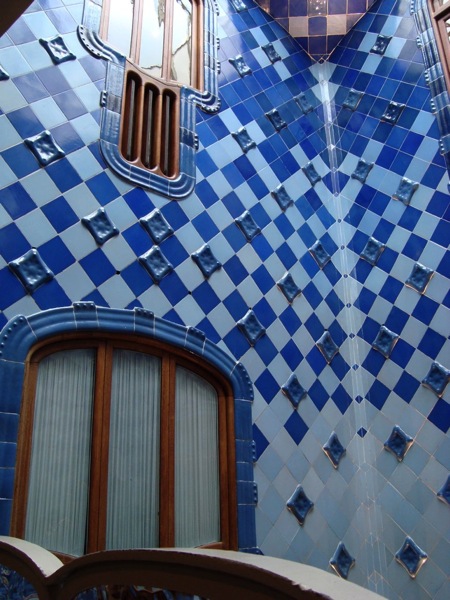
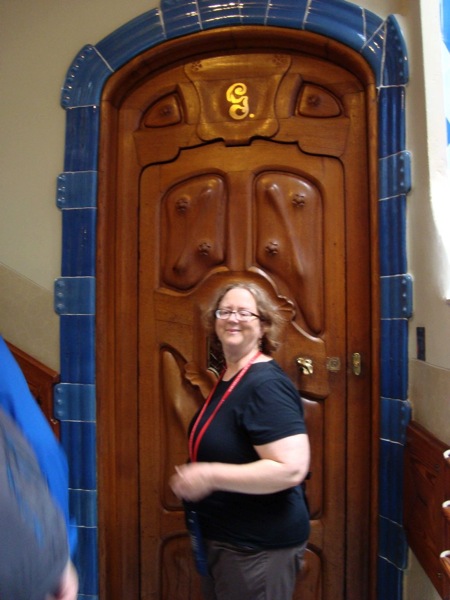
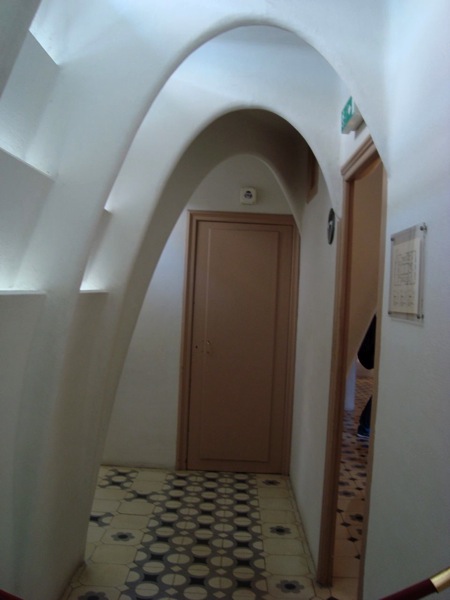
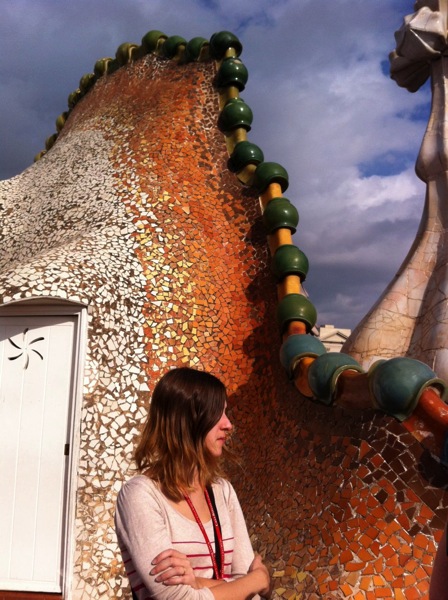
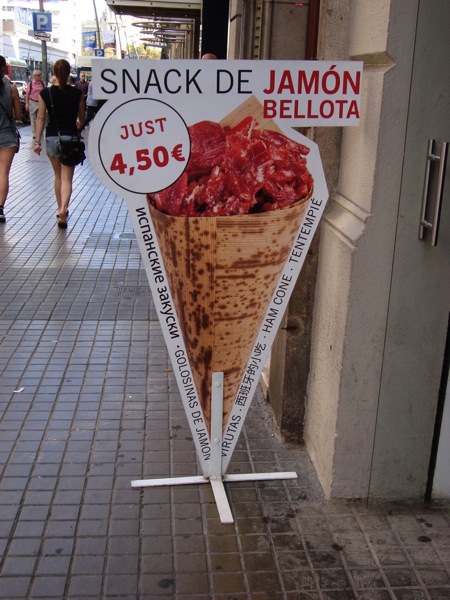
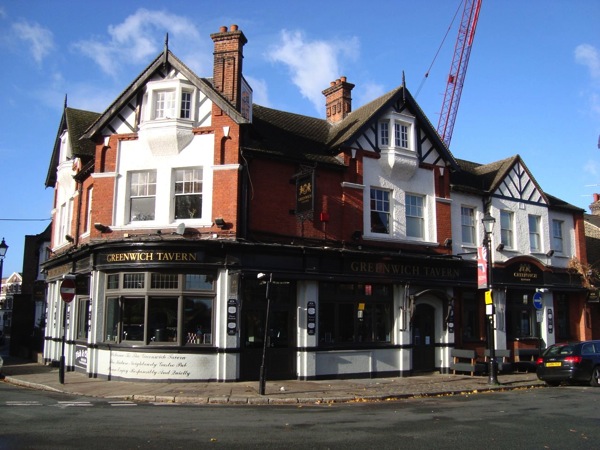
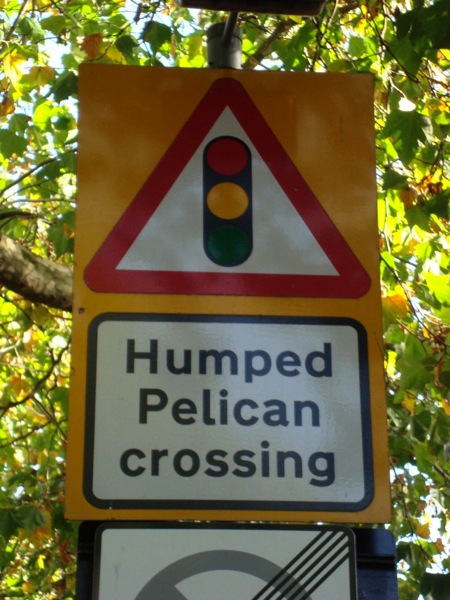
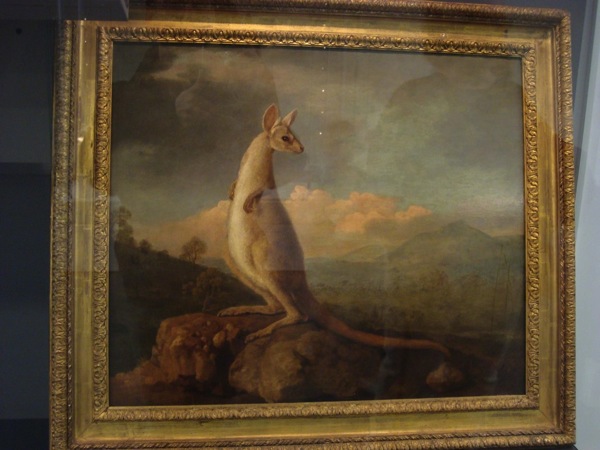
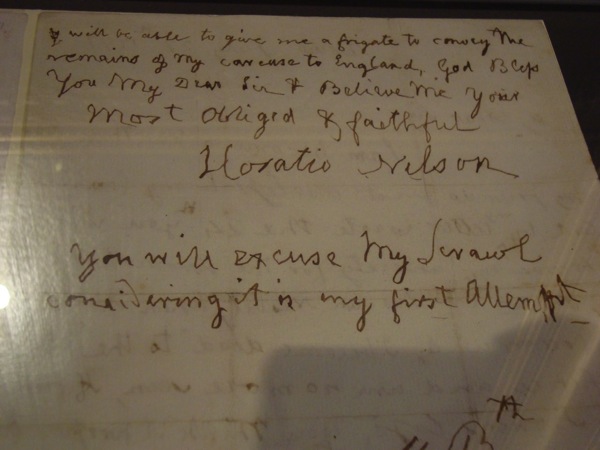
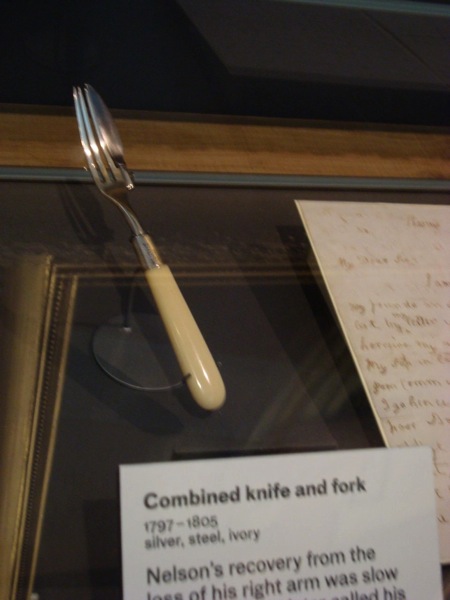
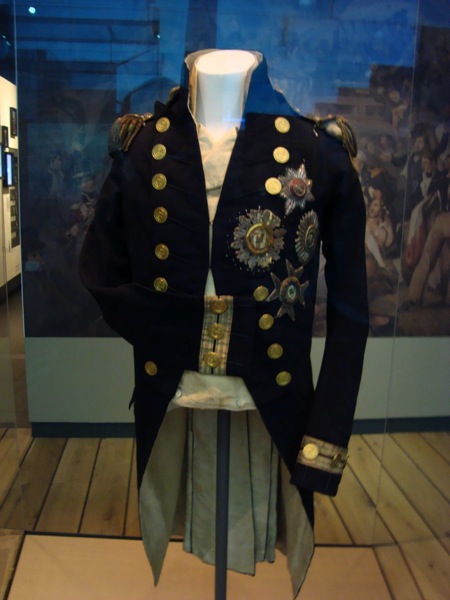
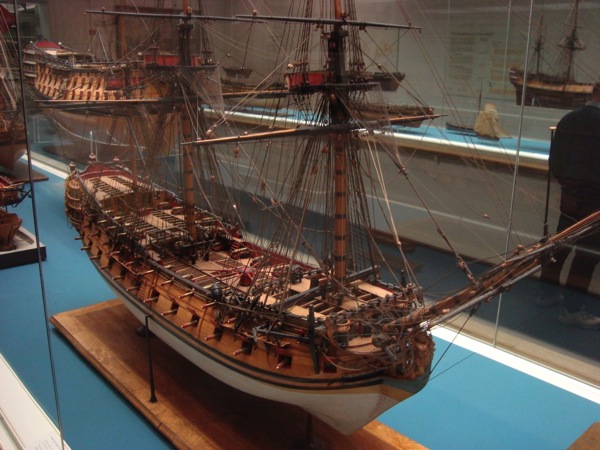
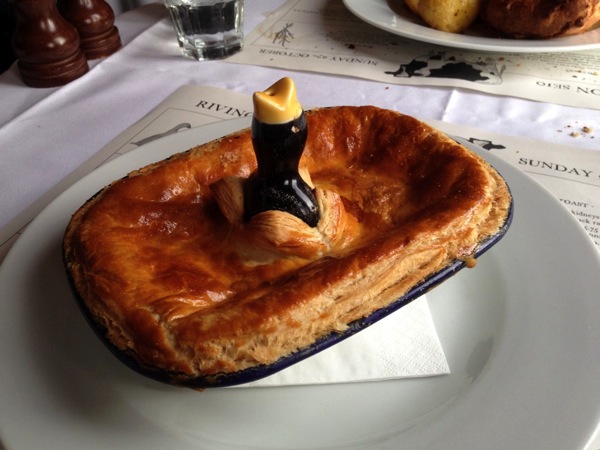
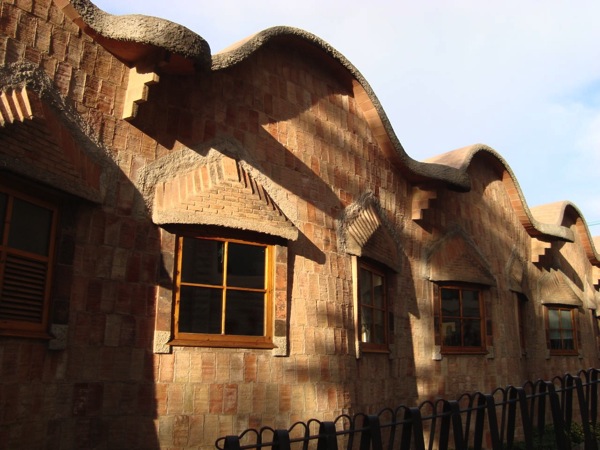
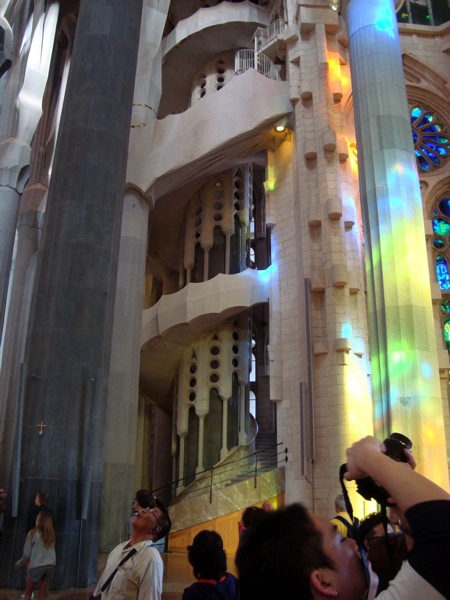
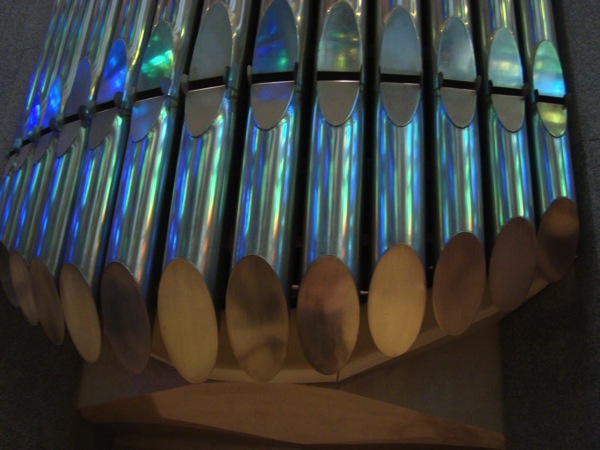
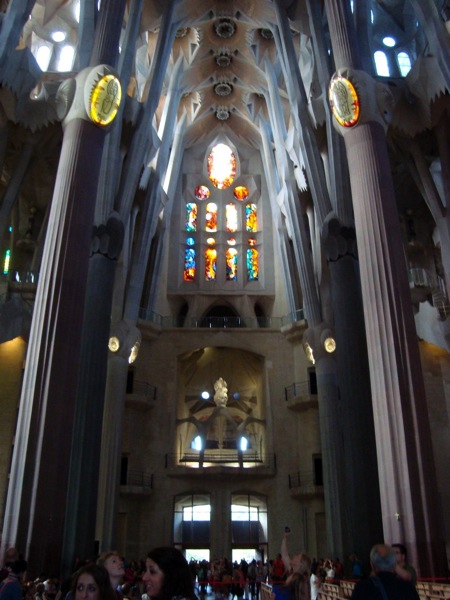
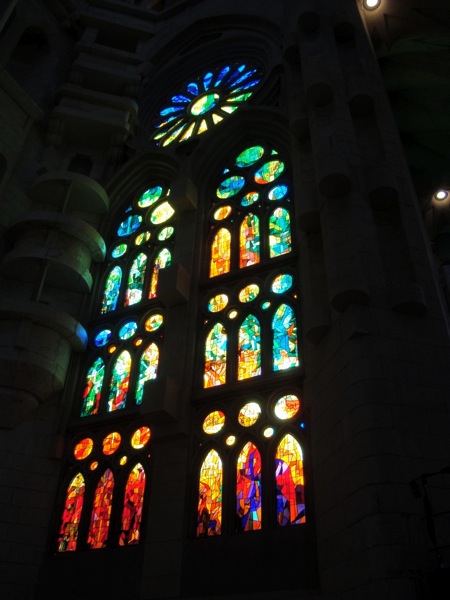
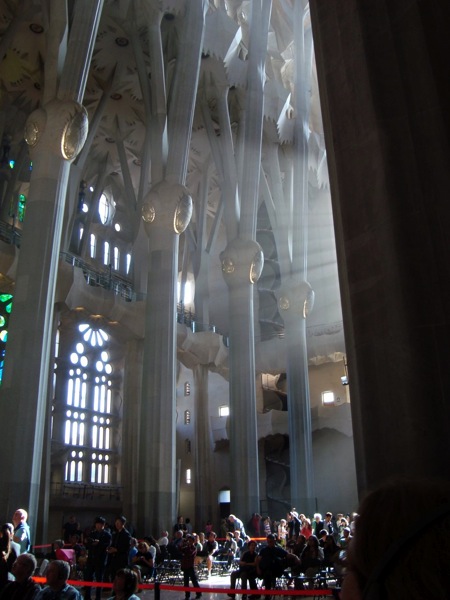
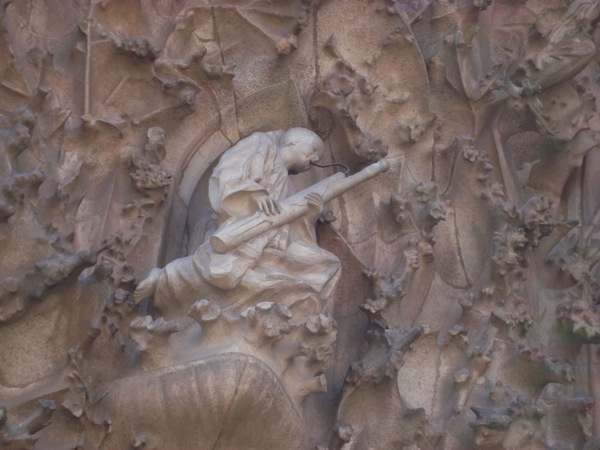
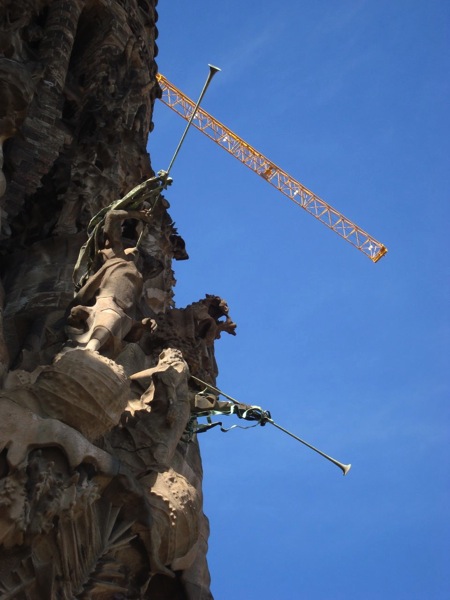
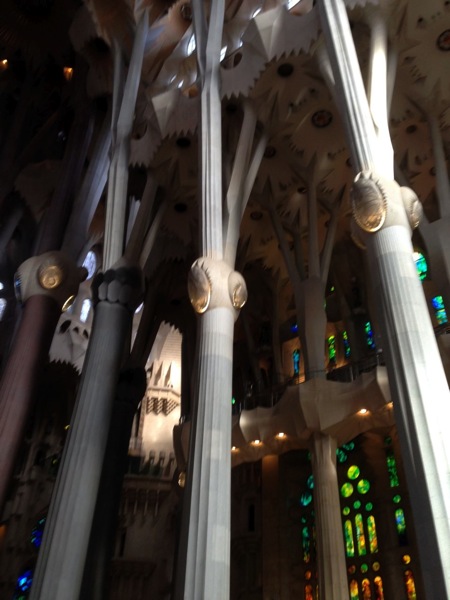

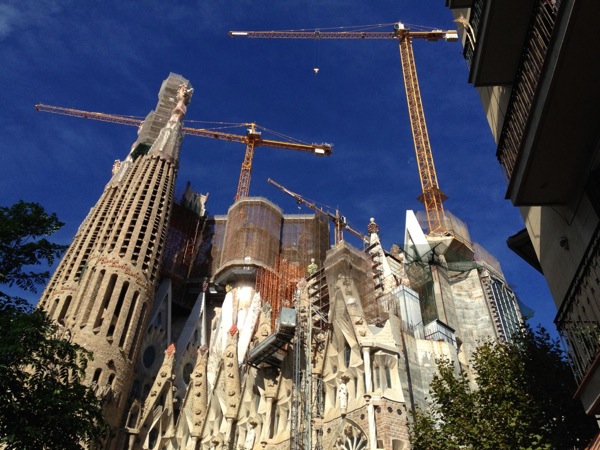
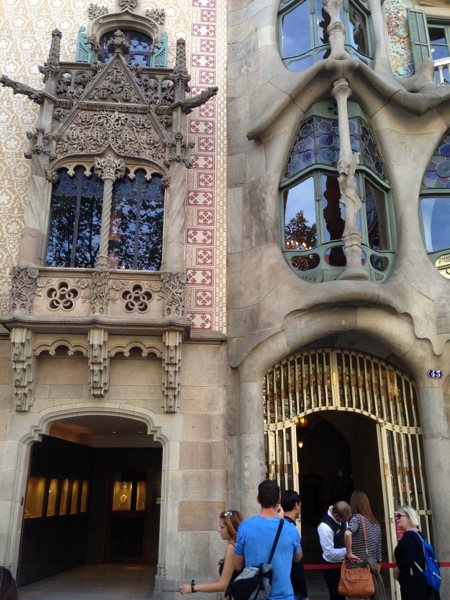

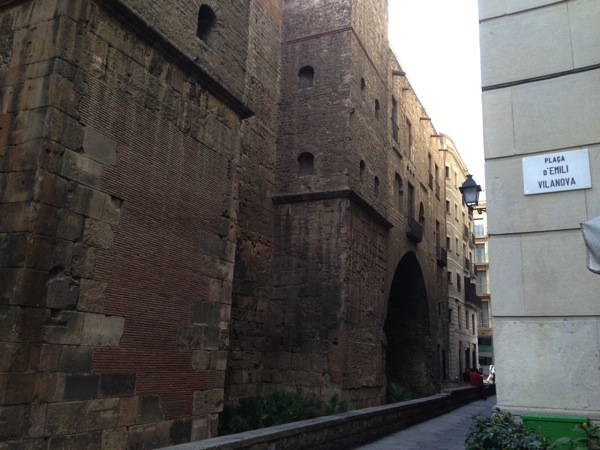
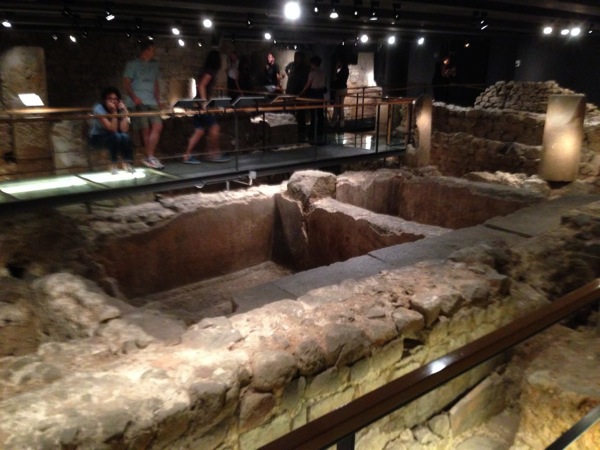
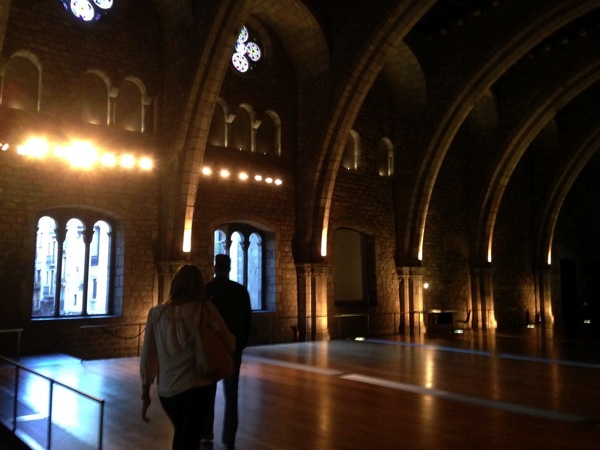
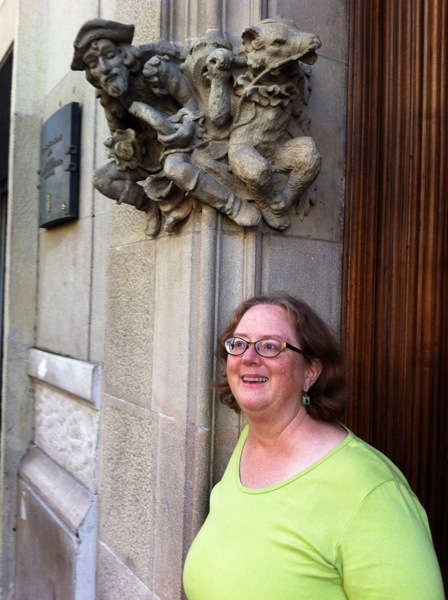

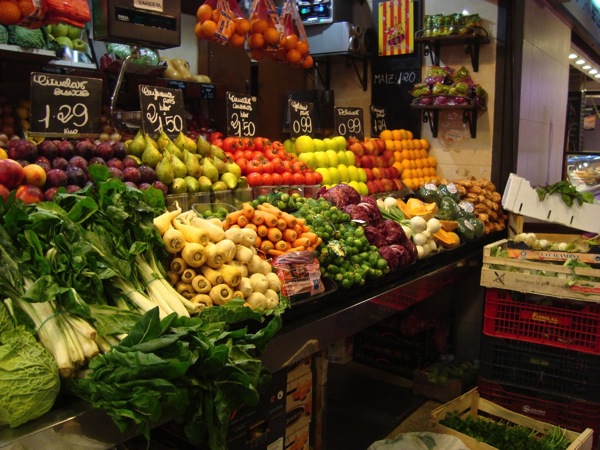
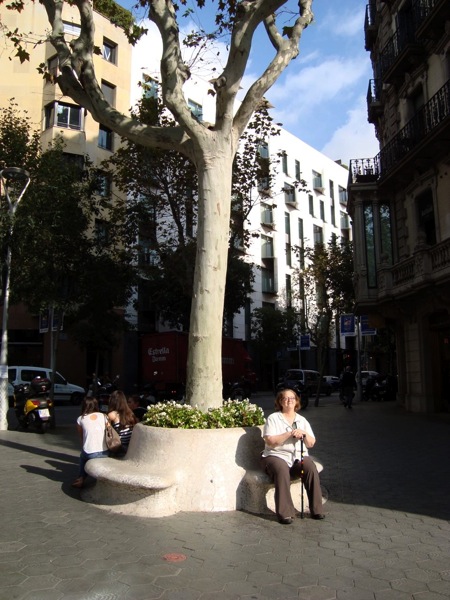
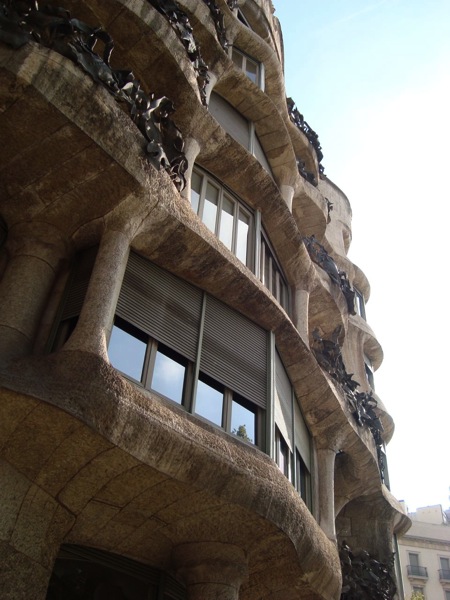
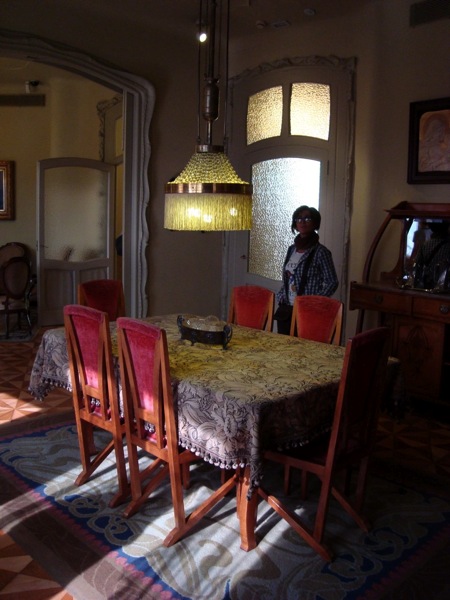

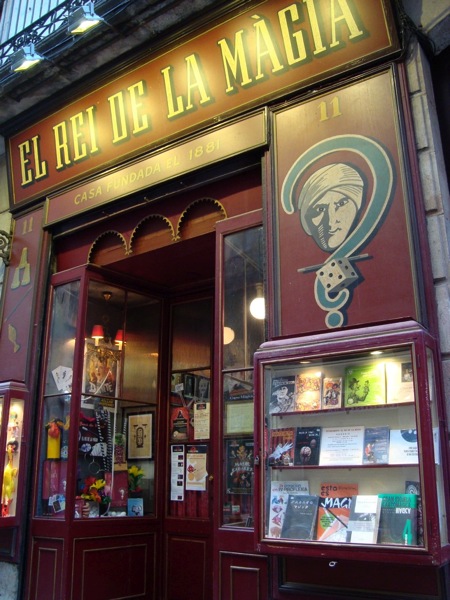
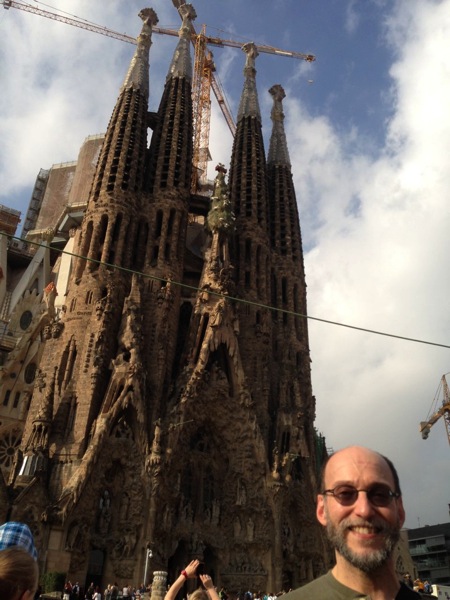
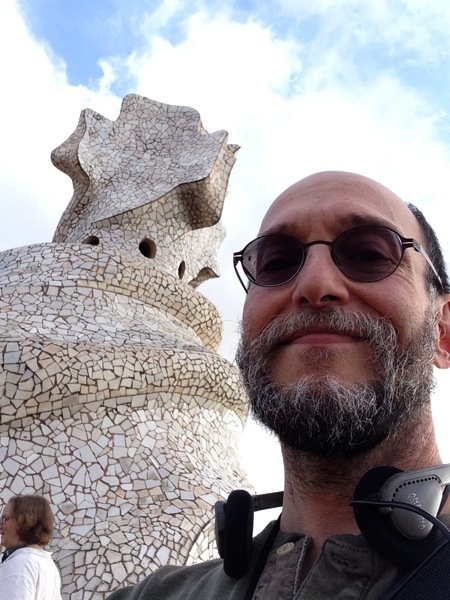
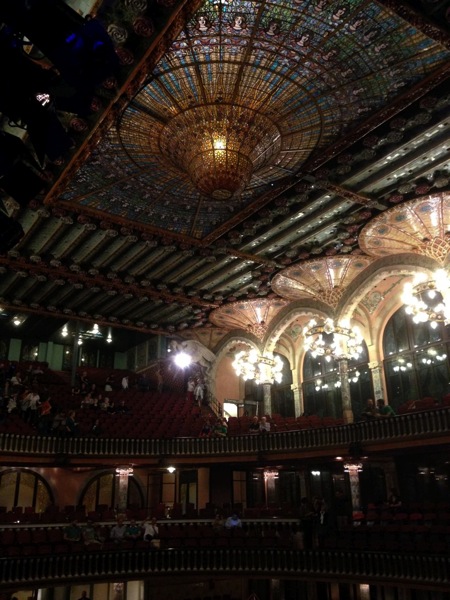
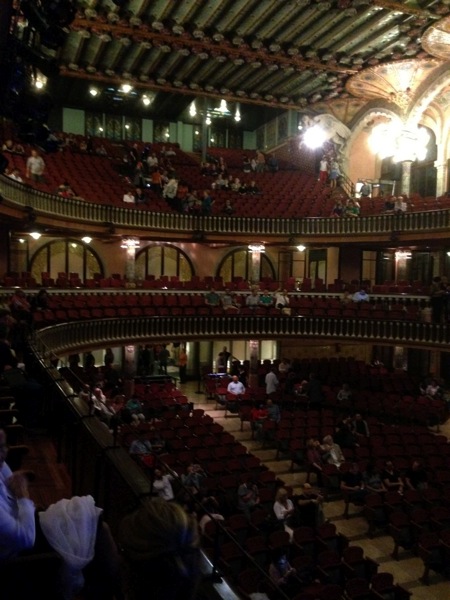
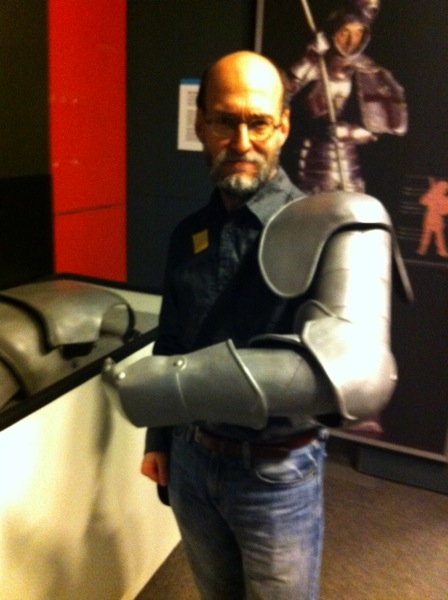
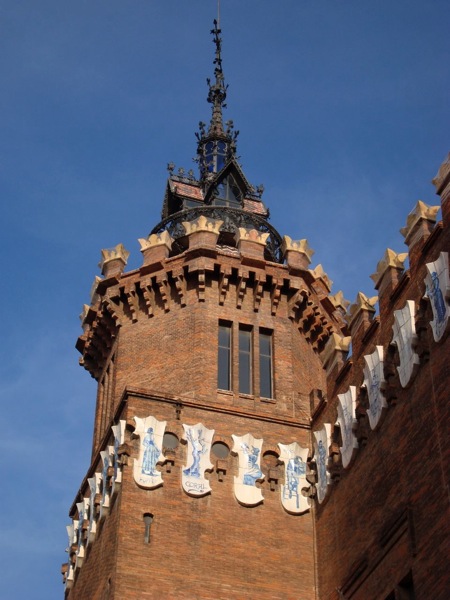
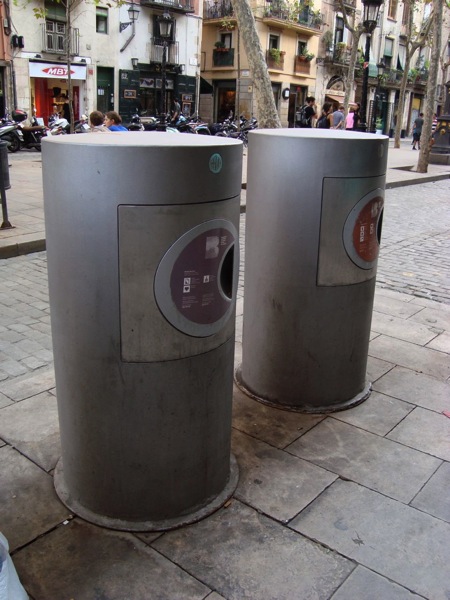
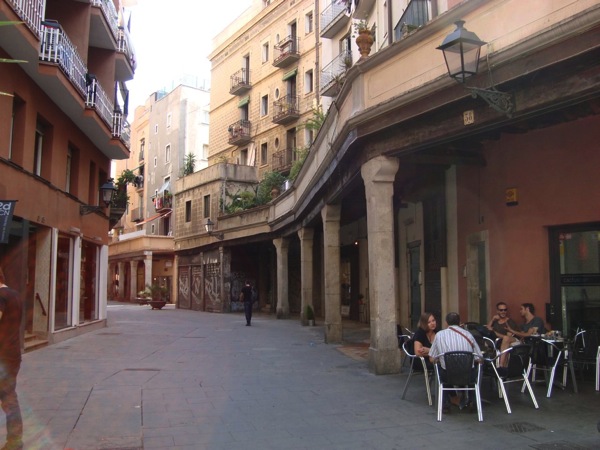
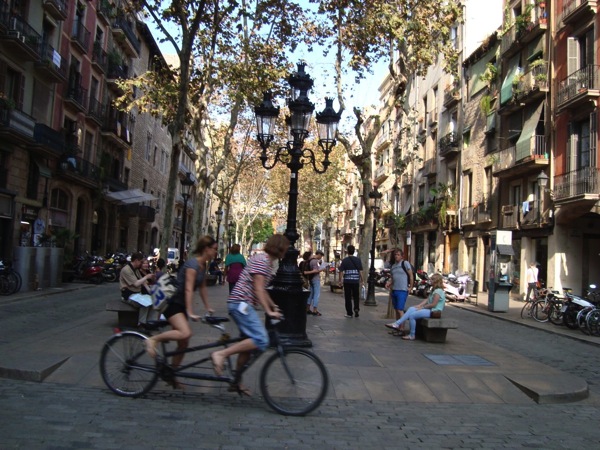
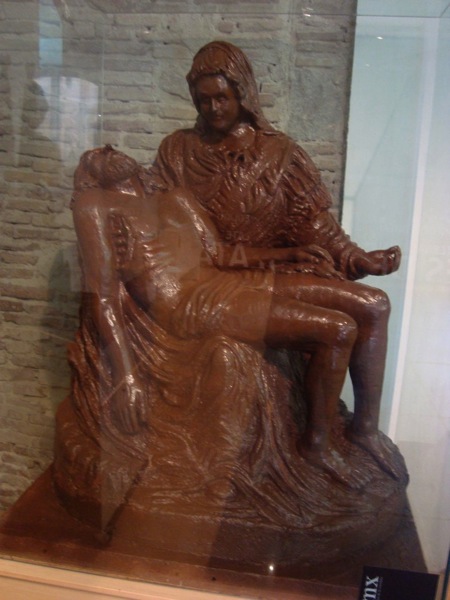
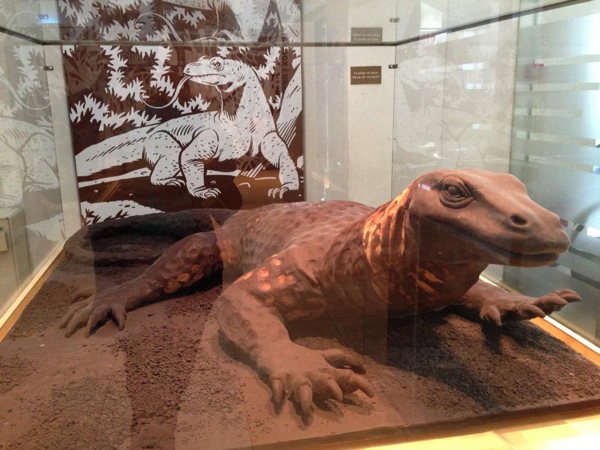
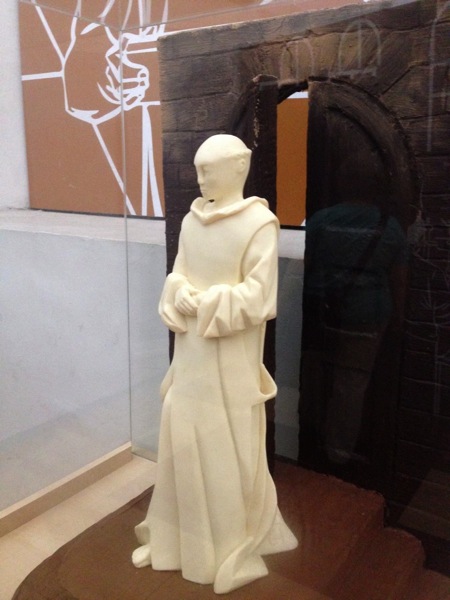
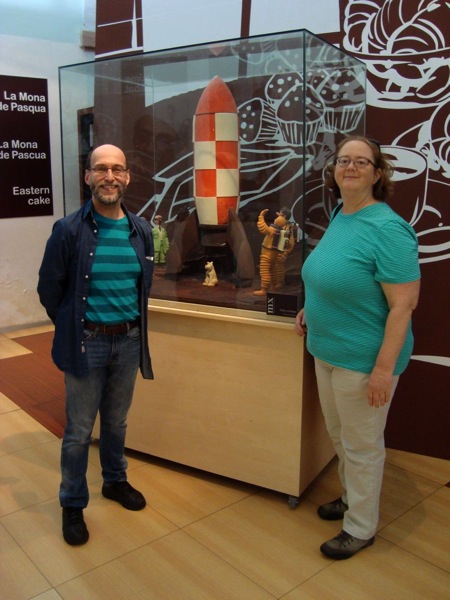
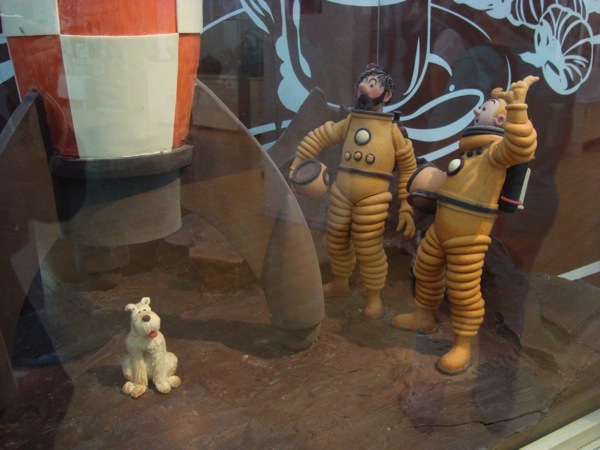
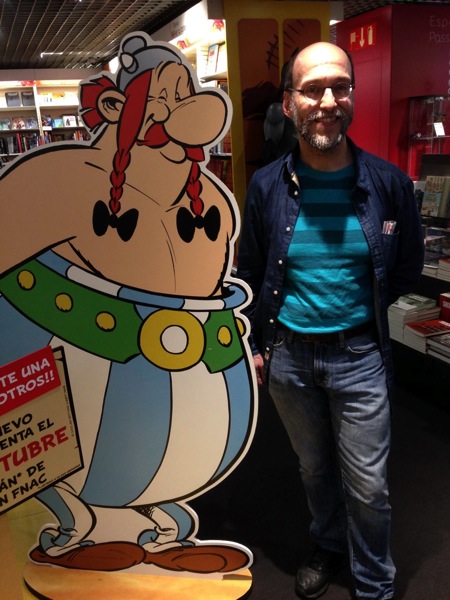
Recent Comments